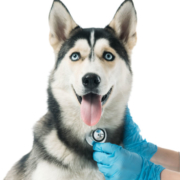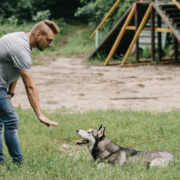Some dogs get very anxious, and it can impact their well-being and how they are and act. Here are some tips for dealing with such issues.
Evaluate Your Daily Routine
Before you spend money on any products claiming that they will calm your dog, think about ways to adjust your behavior to help manage their anxiety. Often, improving a dog’s anxiety is about the pet owner making changes to their behavior so that the dog feels calmer and more comfortable.
Keeping a regular daily routine that allows your dog to predict what his schedule will look like can help your pet be calmer and more confident, as they’ll know when they’ll get to eat, go for a walk, and have playtime with you. This is especially true if your pet suffers from the symptoms of separation anxiety.
Consider Compression Wraps
Thundershirts and other types of compression wraps can have an odd appearance, but they can help with anxiety, and not only during thunderstorms. They’re also great for helping your pet stay calm during fireworks, as well as managing overall anxiety. They help much the same way that swaddling a baby does, providing your pet with overall gentle pressure. It feels a lot like being hugged and helps your pet feel calmer.
Supplements
There are many supplements that can help your dog with stress and anxiety. One of the most prominent at the moment is CBD for dogs – you can read more about it and its benefits here.
Play Background Sounds
Sounds in the background can help your dog relax, as well. Consider leaving the television on for your pet or playing music in the background. Classical music also helps lower stress in dogs, and the background noise may help limit stress barking.
Consider Pet Massage
Physical touch may help treat anxiety and aggression in dogs. Continually petting your pet can help your dog stay calmer when they are anxious or stressed, helping them to feel more comfortable and closer to you when they are uncomfortable.
Work with a Professional
If you’re still having trouble calming your dog, don’t make the mistake of giving up. Instead, work with your veterinarian to determine what is causing your pet’s stress. They can help you develop solutions to manage it and may even have medication that can help. Your pet won’t simply get over the issue, and, likely, the problem will only continually get worse.
Speak to a local veterinarian that specializes in animal behavior or a certified animal behavioral specialist. They can help you develop a plan to treat your dog’s anxiety so that you can enjoy time together again.









